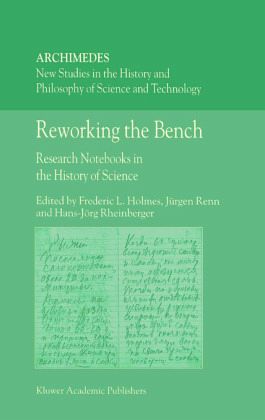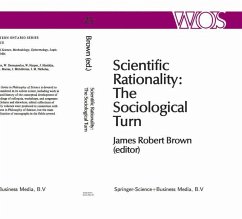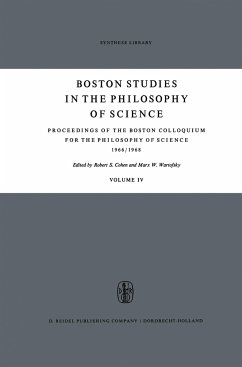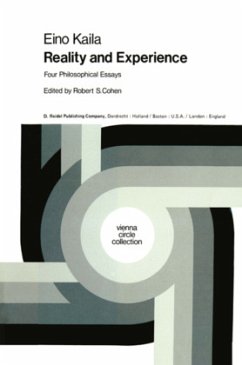
Reworking the Bench
Research Notebooks in the History of Science
Herausgegeben: Holmes, F. L.; Renn, J.; Rheinberger, Hans-Jörg

PAYBACK Punkte
57 °P sammeln!
Research records composed of notes and protocols have long played a role in the efforts to understand the origins of what have come to be seen as the established milestones in the development of modern science. The use of research records to probe the nature of scientific investigation itself however is a recent development in the history of science. With Eduard Dijksterhuis, we could address them as a veritable "epistemologiCal laboratory". The purpose of a workshop entitled "Reworking the Bench: Laboratory Notebooks in the History of Science", held at the Max Planck Institute for the History...
Research records composed of notes and protocols have long played a role in the efforts to understand the origins of what have come to be seen as the established milestones in the development of modern science. The use of research records to probe the nature of scientific investigation itself however is a recent development in the history of science.
With Eduard Dijksterhuis, we could address them as a veritable "epistemologiCal laboratory". The purpose of a workshop entitled "Reworking the Bench: Laboratory Notebooks in the History of Science", held at the Max Planck Institute for the History of Science in Berlin was to bring together historians who have been exploiting such resources, to compare the similarities and differences in the materials they had used and and to measure the potential and scope for future explorations of "science in the making" based on such forms of documentation. The contributions which form this volume are based on papers presented at this workshopor written afterward by participants in the discussions.
This is the first book that addresses the issue of research notes for writing history of science in a comprehensive manner. Its case studies range from the early modern period to present and cover a broad range of different disciplines.
With Eduard Dijksterhuis, we could address them as a veritable "epistemologiCal laboratory". The purpose of a workshop entitled "Reworking the Bench: Laboratory Notebooks in the History of Science", held at the Max Planck Institute for the History of Science in Berlin was to bring together historians who have been exploiting such resources, to compare the similarities and differences in the materials they had used and and to measure the potential and scope for future explorations of "science in the making" based on such forms of documentation. The contributions which form this volume are based on papers presented at this workshopor written afterward by participants in the discussions.
This is the first book that addresses the issue of research notes for writing history of science in a comprehensive manner. Its case studies range from the early modern period to present and cover a broad range of different disciplines.














